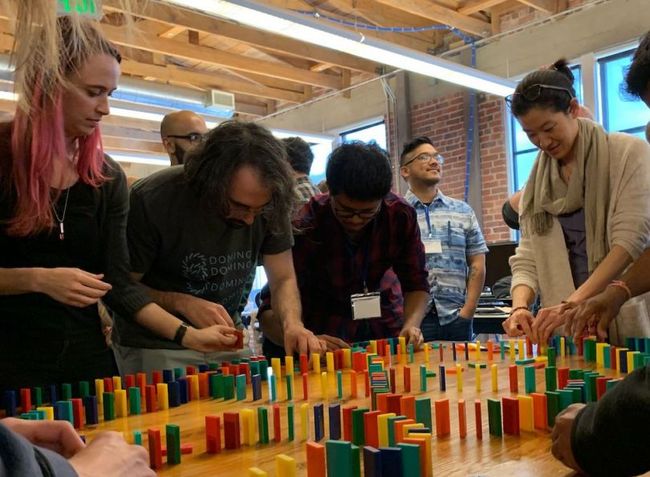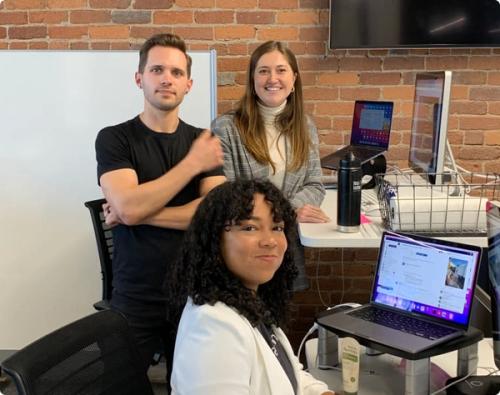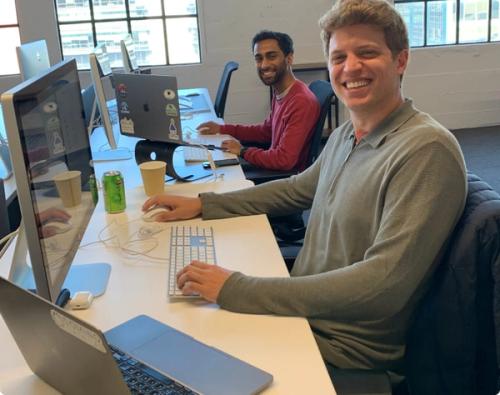What do you do at Domino Data Lab?
I’m the financial controller, which means I lead our Accounting team. Part of our work is serving as a gatekeeper for things like business expenses—the Finance team sets the budget and forecasts how much we should be spending, and then we manage what we actually spend to make sure it’s within policy.
We’re also responsible for maintaining the integrity of our records, ensuring that they’re accurate and transparent. That not only keeps us in compliance with statutory regulations, but also allows us to be ready for something like a new round of funding, because investors use our financial statements to help them understand the health of the company. Of course the same will be true if we eventually move toward an IPO. People make financial decisions based on the information we share, so it’s important that our numbers are sound.
Tell us about your background and why you joined the team.
Right after college I went to KPMG, which is one of the Big Four public accounting firms, as an independent auditor. It’s like consulting—I looked at clients’ financial reports to make sure they were accurate and to help them identify and mitigate risks. I spent more than eight years there, and last fall I decided it was time to choose whether to stay and pursue the partnership or do something different. When it comes to work-life balance, being an auditor is pretty challenging. You’re on call every day, and you work whatever hours necessary to get things done. So I was definitely interested in moving to an in-house role, but I didn’t want to be at a large public company with a lot of pre-existing structure and red tape.
My primary focus at KPMG was start-ups, both pre-IPO and newly public, so I’d worked with a lot of different tech companies in the Bay Area. It just so happens that Domino is also a KPMG client and I learned from my peers that this team really values innovation and process improvement, and the industry was interesting to me, too—I think there’s so much potential in data science and automation. Then a friend from KPMG who had joined the team here referred me for this role, and he had great things to say about the culture. He talked about how much people care about each other and how much he was able to grow. It just seemed like a very collaborative environment, where everyone learns from each other.
What kind of impact do you want to make?
Like any company that’s maturing, we have a laundry list of things we want to accomplish! We’re brainstorming with the team about different improvements and tackling them one at a time. Our CFO, Tom Gleason, is new as well, and I’ve been bouncing ideas off of him about changes we can make. He’s been great—very supportive.
Essentially, I think we really want three things: good processes, good systems, and good people. With processes, we’re getting more structure and workflows in place, making sure we’ve delegated responsibilities correctly and everyone knows who’s doing what. For systems, it’s thinking about how to streamline day-to-day operational work like creating contracts. I never want my team spending their days on data entry; we can automate those tasks.
Then in terms of people, culture is big for me. I want my team members to trust me enough to tell me when they run into challenges—and to feel safe to fail, because that’s how we grow. It’s also important to me to create a team-oriented environment, where people are really collaborating and learning from each other. Accounting teams tend to be very siloed. One person handles billings, someone else does payroll, a third person does invoices. But I want to build something different: I don’t want people worrying about taking time off because no one else can do their job, and I also don’t want them stuck doing one thing. I want to focus on cross-training, because it not only creates a more efficient team, it also gives people opportunities to develop their careers. Hopefully that means we promote them here at Domino. But even if they eventually leave, I want to make sure I’m supporting their growth. That’s what I would want my controller to do for me.




